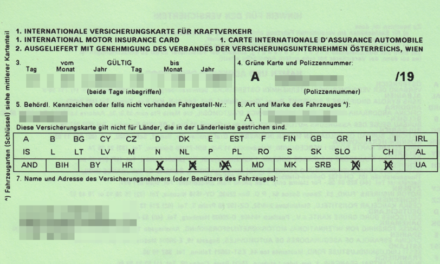Essential for the management of the daily activity of companies, integrated management software are real Swiss knives, which must adapt to the specific needs and constraints of each structure. However, a criterion is sometimes underestimated at the time of Choose an ERP : APIs, which however have a decisive impact on the personalization and scalability of the solution.
Choose an adapted ERP: a real challenge
In general, integrated management software packages offer the same fundamental features, whether they concern human resources, finance, commercial management or customer relations. However, these are not universal solutions, capable of meeting all the requirements of a company, according to its sector of activity and its specificities.
The functional software cover is therefore a criterion of leading choice, because it must correspond to the current and future needs of the organization. As part of an international development strategy, for example, it is imperative to rely on a natively multilingual and multilingual tool. In many cases, it is also preferable to opt for a business ERP, with modules specially adapted to the activity of the company (For example, management software for insurance).
However, even a specialized solution cannot claim to meet all the expectations of your structure. To obtain a really tailor -made service, the Interoperability capacity is a determining element. Indeed, an ERP must necessarily connect to other applications and databases, whether in the cloud or in an existing information system.
Before making a choice, the connectivity of the management software with third -party systems must be evaluated carefully. To do this, the Directorate of Information Systems (DSI) has every interest in reviewing all applications that will send data to ERP or which will consult information from the ERP.
Ideally, this inventory must take into account future needs, that is to say solutions that the company is likely to acquire in the future (and with which the ERP will have to interconnect).
To respond to this issue linked to integration capacity, most integrated management software user software is equipped withApplication programming interfaces (API).
APIs: essential components for a business ERP
An API (of English “Application Programming Interface”) is a set of tools, rules and protocols allowing applications to communicate and exchange data between them.
In other words, theAPI plays the role of intermediary between several softwarewhich facilitates interactions and integrations between distinct systems. Like an interpreter, the application programming interface allows two interlocutors to understand each other and communicate, even if they do not speak the same language.
What are the advantages of APIs in an ERP?
The APIs make it possible to communicate (at the input or output of the ERP) with other software, which has the effect of tenfold the capacities of the tool, but also to open all new prospects for the evolution of the product.
Process automation
First, theAPI integration allows you to automate a number of tasks, often time -consuming and repetitive. This results in a decrease in manual operations, and therefore less time and efforts invested by employees.
At the same time, the automation of certain flows makes it possible to drastically reduce errors Linked to entries, oversights or duplicates: frequent pitfalls when large data sets are manipulated “by hand” between several software.
Improved connectivity
By allowing different systems to communicate between them, the API improves collaboration and data exchange within the companythus reinforcing its digital ecosystem. Users can easily access a wide variety of services, as the different applications are perfectly integrated with each other. This also has a positive impact on the user experience.
Pushed customization
APIs bring great flexibility, because They allow you to easily add or modify features. The ERP can therefore be perfectly calibrated to meet the specific needs of the organization.
A great scalability
APIs facilitate updates to different systems. Indeed, they make it possible to increase the functional coverage without interfering with the central nucleus of the software. They also guarantee scalability and the rise in activityfor example in the event of an increase in the amount of data to be managed.
Concrete profits for your business
- Save time and productivity : Thanks to the automation of processes, the fluidification of data exchanges and the decrease in errors, you save precious time on a daily basis. You also increase the productivity of your teams, which are freed from certain time -consuming tasks.
- Unparalleled agility : APIs bring you the flexibility you need to quickly adapt to changes in your needs and your market, because they allow you to easily personalize your ERP.
- A lever for innovation : Application programming interfaces offer the possibility of exploiting advanced technologies and seizing new opportunities to remain competitive. They also promote innovation by simplifying the integration of third -party applications and improving collaboration.
- Fluid collaboration : an ERP offering a great diversity of API makes it possible to fluidify data exchanges, but also the work processes. What strengthen collaboration within the teams and between the various services. In addition, real -time access to precise and updated data promotes informed decision -making.
API use cases within an ERP
The possibilities offered by the APIs are almost unlimited! However, reporting and analytical features are among the most widespread use cases.
Indeed, APIs Automate the data extraction process from ERPin order to analyze them in a business intelligence tool (BI). What eliminate the risks linked to the manual data entry, while ensuring that all the necessary data is collected quickly and precisely.
It is also possible to plan data collection so that it is automatically and regularly. Finally, the BI tool can be connected directly to the ERP, which makes it possible to carry out real -time analyzes on the data.
Another frequent application of APIs in an ERP is Integration with customer relations management software (CRM). Indeed, it is possible to synchronize customer data between the ERP and the CRM to obtain a coherent overview, and thus analyze with precision interactions with customers and prospects.
You can, for example, easily consult the history of communications, transactions, but also behaviors and preferences of customers. APIs can therefore help you improve the quality of service, with a positive impact on satisfaction and customer loyalty.
But programming interfaces also have more specific applications. In the insurance sector, for example, it is possible to use APIs to automate certain external controlslinked to the detection of fraud or the fight against money laundering and the financing of terrorism (LCB-FT). It is therefore a lever for conformity and safety which can be precious, in particular in a sector subject to major regulatory constraints.
How to successfully integrate API into your ERP?
If the advantages of APIs in an ERP are obvious, it is still necessary to deploy a solution that will allow you to exploit all their benefits.
To do this, the first step is to Identify the specific needs of your business and to determine the APIs capable of meeting these requirements. Through specifications, you must clearly define the objectives of API integration, identify essential features and critical data flows.
Therefore, your choice must be made on an ERP open and flexible to meet the needs identified. Ideally, the management software must allow theAPI integration into standardized protocolswhich promote interoperability between systems. The proposed APIs must be well documented, but also evolving: a crucial point to deal with future needs and the potential rise in charge of your activity.
Unlike the acquisition of a new software, integration via an API requires little training (if at all) for users, who benefit from new features while remaining in a familiar software environment. Thus, the efforts to be provided in terms of change management are less.
Despite everything, for each API, it is important to:
- Check the existence of an API integration between the ERP and the application that interests you.
- Study the different data flows to be set up so that the API is operational.
- Testing integration beforehand, to be sure that the process works as expected.
- Initially, deploy the API with a limited number of users who will be able to test its features and suggest relevant changes if necessary.
The use of API in an ERP can save you time on a daily basis and bring you great flexibility, while facilitating collaboration … provided you choose a perfectly cut tool for your business, offering integrations that meet your specific expectations.
Orisha Insurance offers management software insurance players capable of communicating with all ecosystems thanks to powerful APIs: from business intelligence to accounting, including electronic signature and customer relationship management, your agile ERP adapts to all your needs and future projects!
Ask for your free demo
By Orisha Insurance
Do you like this article? Share it!





